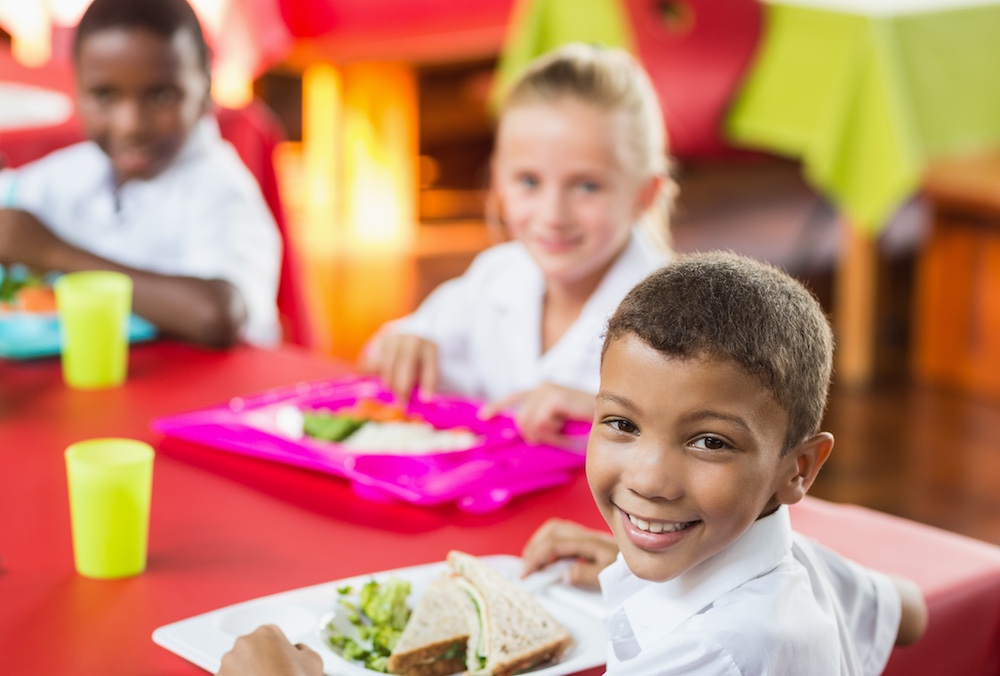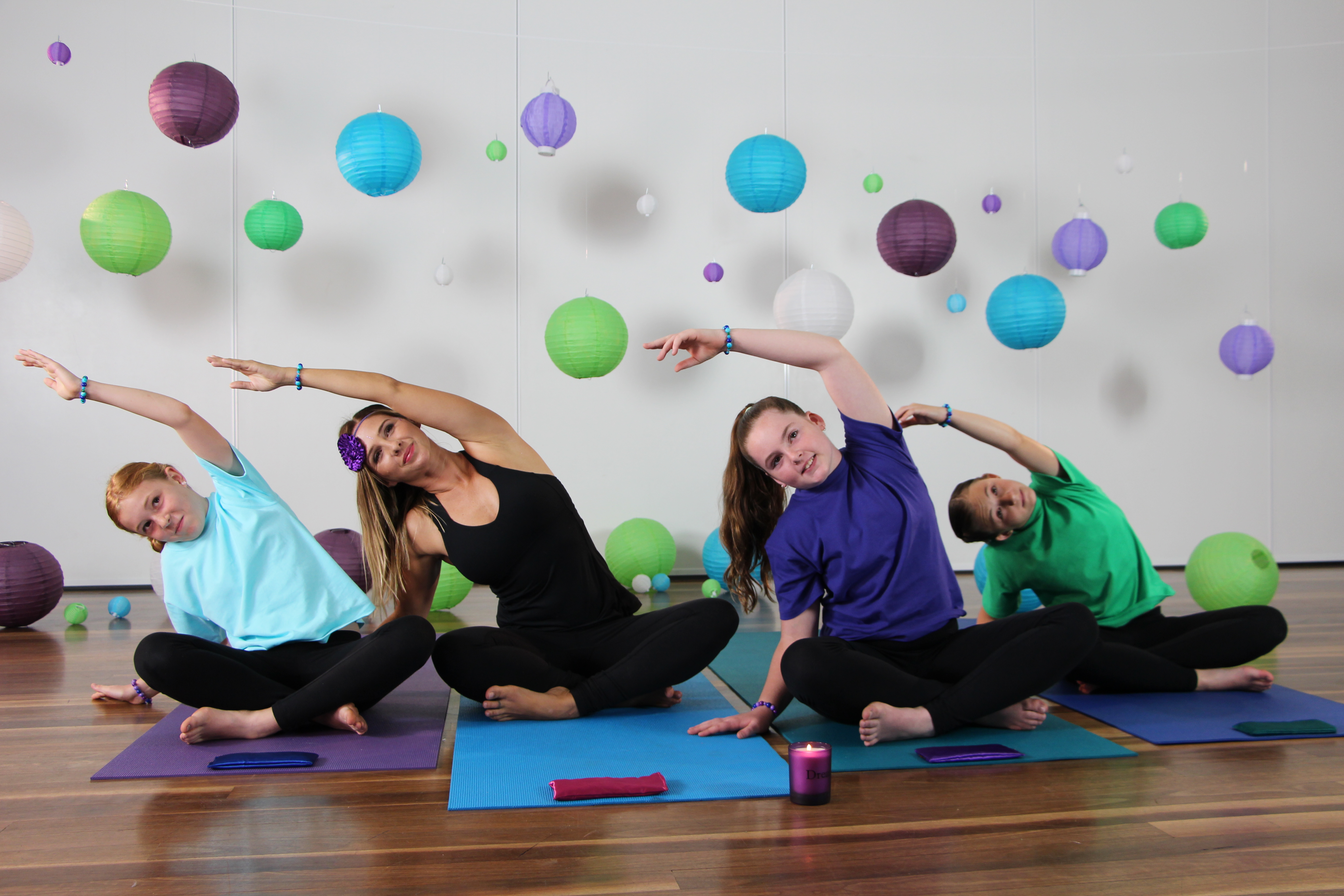Childhood nutrition is everyone’s business

Concerned parents scour supermarkets for healthier ways to pack lunches, governments move towards healthier canteens, and teachers are calling for proper nutrition on school mornings. There is consensus on one thing: food matters.
Schools have embraced the importance of a healthy tuckshop, but healthy snack options continue to elude many families. The government’s National Health School Canteen framework (NHSC) (while certainly improving the nutritional profile of schools’ offerings) has some gaping holes, and probably needs further examination to solve questionable inclusions, like categorising sugar-laden strawberry-flavoured milk as a green-light food.
Australian students spend at least 30 hours of their waking (and eating) hours at school. Parents can’t do it alone, especially with older children and teens. If the school food service is awash with junk food, resistance is tough for a stressed-out teen, and what goes on at home just can’t balance it out. Wherever kids congregate, the onus should be on us to provide a balance of positive options that support their bodies. Childhood nutrition is everybody’s business.
Government programs such as NHSC do provide frameworks within which canteen coordinators can develop menus, and there is improvement in the information being released to school students around what constitutes a balanced diet.
While meal options at school canteens have vastly improved since the pie and sauce days, snacking still confounds many. What are the options? What can schools do to provide healthy snack options to their students?
School News called on former Biggest Loser producer and Gnibl snacks founder, Nick Volpe, to learn what sorts of snack solutions will cut the mustard at your school.
Industry View
In his former incarnation as a TV producer, Mr Volpe was moved by just how difficult it was for kids (and adults) to snack well: “Finding time to prepare a healthy snack is often impossible, and knowing what to prepare can be confusing.”
The internet abounds with advice on how to resist snacking; praise for French children who never snack; advice about resisting carbohydrates; and articles with titles like; ‘why you can’t resist a snack when you’re tired’. Snacking is a problem for many people. Mr Volpe advised: “Since snacks make up 30 percent of our calorie intake, controlling intake quality is vital”.
Passionate about healthy living, Mr Volpe is convinced that “recognition of the worsening worldwide crisis caused by unhealthy eating” is growing. “The call for a sugar tax in Australia made headlines,” he maintained, “and so did the International Diabetes Federation call for world leaders to address preventable diseases arising from excessive sugar intake ahead of the G20 conference in November 2016”.
[pro_ad_display_adzone id=”5852″ align=”left”]
He quoted some worrying statistics, however: “63 percent of Australians are overweight or obese, and one in four children (under 17) is overweight.” According to Mr Volpe, “the issue of healthy versus unhealthy food now involves an ethical issue that cannot be ignored”.
Re-framing healthy choices
Providing nutritious snacks for purchase in canteens works well when these snacks are not pitted against chocolate ice cream or a donut. Kids will be kids, and it doesn’t seem fair to lay the weight of such decisions on their shoulders.
When Jamie Oliver’s campaign to reform school dinners had parents passing food through the fence at Rawmarsh School in England, many called his ideas ‘food oppression’… so nobody is suggesting that making changes is always simple. However, with methodical programs including education, warning and replacement with healthy and delicious options, schools can go junk-free.
Nick Volpe told School News: “To effect meaningful change, there needs to be an integrated approach with a consistent message about healthy eating in the whole school environment. Students need to see the same healthy options where ever they are – in the vending machine, in the canteen, at sporting events and so on.”
Some schools are fortunate enough to enjoy extensive parental input into school canteen, while others are struggling to retain one or two volunteers. As with all school-based solutions, it’s about finding a shoe that fits. Some schools incorporate their kitchen-garden program into food production, and have participating classes, along with their parent volunteers, produce snacks for sale – while others just need a set-and-forget solution.
Healthy fast food: is it possible?
Nick Volpe thinks so. Gnibl provides healthy snacks to existing canteens, or via vending machines: “Vending machines can run 24/7 which means they can reduce on staffing costs in school canteens for times outside of the main food service times,” Mr Volpe explained, adding that boarding students can especially benefit from access to healthy options on campus.
In the interest of removing the nutritional ‘guess-work’, Nick Volpe reported: “The touch-screen menu provides nutritional information on products as well as caters to specific dietary requirements like gluten-free, dairy-free, no sugar added or protein source.”
Expecting a backlash when you overhaul the menu? Don’t. Mr Volpe said customer feedback indicates “delight at discovering just how delicious and interesting healthy convenience foods have become”.
Simple to use: “The machines incorporate high tech cloud-based software enabling us to track vends and stock levels in real time and refill before you run out,” he reported. “We also produce reports which enable us to fine-tune the range in consultation with the school over time.”
With plans for in-school education programs in the pipe-line, Nick Volpe says workshops need to be inclusive, hands-on, fun, and relate to specific issues faced by parents and kids today.
Nick Volpe hopes awareness about the importance of healthy eating continues to grow: “We still tolerate junk food far too casually. The chronic diseases associated with bad eating don’t simply happen of their own accord. We know their causes and we tolerate them at the risk of our own demise.”







